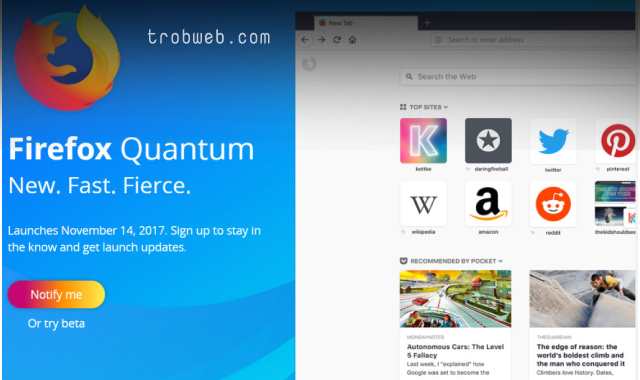

- Firefox quantum vs opera gx update#
- Firefox quantum vs opera gx windows 10#
- Firefox quantum vs opera gx software#
- Firefox quantum vs opera gx code#
- Firefox quantum vs opera gx plus#
The browser sandbox is the key feature that makes browsing on the web frictionless by making it safer to run arbitrary code.Ĭhrome was one of the first web browsers to implement per-tab sandboxing to improve security, which led to increased memory usage compared to other browsers (hence the origin of the memes). How about when someone sends you a URL saying "check out this blog post"? You would probably click on it without asking questions like "What kind of JavaScript will this site download?".

If someone told you "Hey! Download and run this application!", you might pause to think if that application comes from a trusted source, read up on the application vendor, or check reviews carefully.
Firefox quantum vs opera gx code#
This blog post from Google explains why sandboxing is necessary:Įvery day, users of the web download arbitrary code and execute it on their computer or phone multiple times. So why do web browsers need so much memory, you may ask? The answer is sandboxing, a security mechanism for separating applications or tasks from each other. Chrome, Edge, and Opera GX all performed roughly the same. Firefox had the lowest RAM usage, using around 700 MB with the same three pages.

Vivaldi ended up being the most RAM-hungry in this test, consuming just over 1GB of memory just to keep the three tabs running. Content/ad blocking was turned off across all browsers, and we let the tabs run for a while (while scrolling/clicking elements) to determine the minimum and maximum usage.
Firefox quantum vs opera gx plus#
This should roughly simulate what most people might have open in a browser while gaming-music or videos streaming in the background, plus a few guides or wiki pages. To test RAM usage, we opened three tabs with the same pages across all browsers: a YouTube video playing at 480p, and the home pages of two news websites with various videos, images, and ads. It’s common when switching browsers that the new one feels significantly faster, but the difference can simply be that your thousands of history entries, bookmarks, and extensions haven’t been moved to the new application. Importantly, each browser was tested with a clean user profile-no synced data, no extensions running, and so on.
Firefox quantum vs opera gx windows 10#
The testing was performed on a PC with a R圜PU, an Nvidia GTX 1080 graphics card, 16GB RAM, and Windows 10 Pro build 2004. We used three web-based benchmarks for testing performance: JetStream 2 (a JavaScript and WebAssembly benchmark), MotionMark (a graphics test), and Speedometer 2 (a benchmark for typical web apps). It also needs to do, well, browser things. Ideally, the best browser in this scenario should load pages and content quickly, while also not slowing down any games that might be running at the same time. The most important factor here is performance: not only how fast a web browser is on your PC, but also how resource-efficient it is.

The browser is only available for Windows, and you can download it from its official website.
Firefox quantum vs opera gx software#
Opera GX supports synchronization with other Opera browsers, so you could also use the company’s other software for regular browsing/productivity, and only open GX when you need the gaming features. The limiters for RAM, network bandwidth, and CPU are great to have. The interface isn’t for everyone-it honestly looks like a BIOS from a gaming motherboard-but Opera GX is a good browser for checking information or streaming music while you have a game open. Opera’s gaming-focused browser, Opera GX, gets an honorary mention here. Honestly, I have Chrome set up just the way I like it, the only issue I have is those occasional, inexplicable CPU usage surges (which are admittedly very annoying).(Image credit: Future) The runner-up: Opera GX I also currently have 9 chrome user accounts that I switch between for various different uses, and when using them I also often switch between PC and android, so trying to get things set up again on a new platform would be a huge pain.
Firefox quantum vs opera gx update#
Even considering the Chromium alternatives, until you've tried them one by one you don't know which ones will work properly, and even then you never know when an update will render them suddenly unusable, and the fact you need to use a workaround to get them working in the first place is another weak link in the chain (besides which, before this CPU limit feature I haven't seen a Chromium browser offer anything to make them more appealing to me than Chrome itself). I don't make a point of regularly checking up on their availability on other browsers (because I'm not really looking to change), but the last time I looked around a lot of them either weren't available or weren't kept up to date as consistently as Chrome. I use about 30 extensions, some of those intermittently, some constantly.


 0 kommentar(er)
0 kommentar(er)
